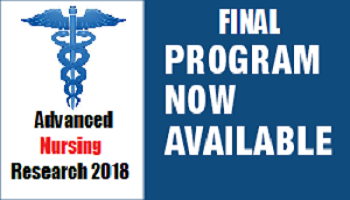
Evalina Van Wijk
Western Cape College of Nursing, South Africa
Title: Evalina Van Wijk, Western Cape College of Nursing, South Africa
Biography
Biography: Evalina Van Wijk
Abstract
Statement of the Problem: Although advanced psychiatric nursing (APN) is a relatively new specialty in South Africa, there is no specific scope of practice /competency framework developed for this category of nurses. Therefore, basic psychiatric registered nurses and APN’S have the same job description with the result that the blended role of APN’S as equal partners in the holistic care of the bio-psychosocial needs of patients is generally not accepted and they experience resistance within multi-disciplinary teams. Due to the lack of a specific scope of practice/competency framework developed for this category of nurses other discrepancies’ between the different training providers in the country identified were: different subject content as well as different skills/competencies are taught and assessed. Consequently not all graduates enter the profession with the same advanced level of knowledge and skills. This result in that state as well as the private sector can’t draw up different job descriptions for advance psychiatric registered nurses and are compelled to use the same job description as those that is used for basic psychiatric registered nurse. These cause much unhappiness and demotivation amongst APN’S trained by different training providers because the skills/competencies they were taught are not reflecting on their job description.
Challenges: Most of the multi-disciplinary team members are not aware of the different skills and knowledge taught to advanced psychiatric students which grossly disadvantage them because they are not always allowed to work with patients and render care on an advanced level-this result in that when they complete their course, some of them are unable to work as an independent practitioner/to render care on an advanced level. Due to the lack of a specific scope of practice for APN’S they have the same job description as those with basic psychiatry, this further lead to conflict amongst the different candidates because those who did their courses at different training facilities cannot perform the same duties. This also lead to much unhappiness amongst graduates because some felt on completion there are very few specialist posts available, and even if they manage to be appointed in such a post, their expertise is not adequately utilized.
Conclusion: It is anticipated that if there was a specific scope of practice for APN’S, training providers should use it when designing the theoretical and practical curriculum. This would enable graduates irrespective of where they did their training to adequately address the bio-psychosocial needs of patients and families, to address the burden of disease, to maintain the sustainable goals and to play a pivotal role in alleviating the manpower shortage.
Implications for Nursing: Since it was identified by the South African Nursing Council and Health Care Providers that the scope of practice of APN’s in South Africa urgently needs clarity and parity, a working group, in collaboration with SANC, started to delineate the scope of practice of APN’s and to develop separate job descriptions for basic registered psychiatric nurses and APN’S.

